
Kokopo: Gateway to East New Britain
Kokopo, located in East New Britain Province, Papua New Guinea, is a hidden gem for travelers seeking a mix of cultural heritage, natural beauty, and historical intrigue. Once known as the town of Rabaul before the volcanic eruption in 1994, Kokopo has risen with charm and resilience, becoming a vibrant hub for visitors. The city offers a stunning backdrop of lush rainforests, volcanic landscapes, and pristine beaches. Tourists can immerse themselves in the local culture by visiting the bustling Kokopo Market, where they can find local crafts, fresh produce, and unique souvenirs. The Kokopo War Museum provides a poignant glimpse into the area's wartime history with relics and artifacts from World War II. For nature enthusiasts, a visit to the nearby Duke of York Islands is a must. These islands boast crystal-clear waters, perfect for snorkeling and diving. Kokopo is also a gateway to the active Tavurvur volcano, where adventurous travelers can witness the raw power of nature up close. The city's warm and welcoming locals further enrich the experience, making Kokopo a memorable destination for all who visit.
Local tips in Kokopo
- Visit the Kokopo Market early in the morning for the freshest produce and best selection of local crafts.
- Hire a local guide to explore the Tavurvur volcano for a safe and informative experience.
- Bring cash as many local vendors and smaller establishments do not accept credit cards.
- Respect local customs and traditions; always ask for permission before taking photos of people.
- Stay hydrated and use sunscreen when exploring outdoor attractions.
Kokopo: Gateway to East New Britain
Kokopo, located in East New Britain Province, Papua New Guinea, is a hidden gem for travelers seeking a mix of cultural heritage, natural beauty, and historical intrigue. Once known as the town of Rabaul before the volcanic eruption in 1994, Kokopo has risen with charm and resilience, becoming a vibrant hub for visitors. The city offers a stunning backdrop of lush rainforests, volcanic landscapes, and pristine beaches. Tourists can immerse themselves in the local culture by visiting the bustling Kokopo Market, where they can find local crafts, fresh produce, and unique souvenirs. The Kokopo War Museum provides a poignant glimpse into the area's wartime history with relics and artifacts from World War II. For nature enthusiasts, a visit to the nearby Duke of York Islands is a must. These islands boast crystal-clear waters, perfect for snorkeling and diving. Kokopo is also a gateway to the active Tavurvur volcano, where adventurous travelers can witness the raw power of nature up close. The city's warm and welcoming locals further enrich the experience, making Kokopo a memorable destination for all who visit.
When is the best time to go to Kokopo?
Iconic landmarks you can’t miss
Kokopo Beach Bungalow Resort
Discover the ultimate tropical escape at Kokopo Beach Bungalow Resort, where adventure meets relaxation in beautiful East New Britain.
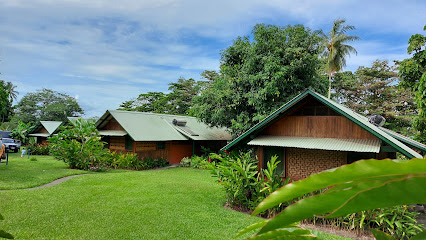
Rapopo Plantation Resort
Discover the serene beauty and vibrant culture of East New Britain at the picturesque Rapopo Plantation Resort, your perfect tropical getaway.

Tropicana Shopping Center RETAIL
Discover the Tropicana Shopping Center in Kokopo, a vibrant retail oasis offering shopping, dining, and cultural experiences in East New Britain Province.
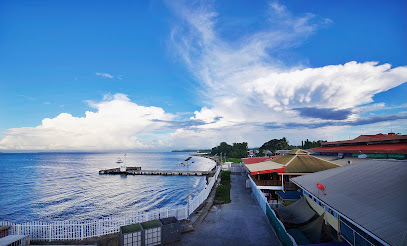
Gazelle International Hotel
Discover comfort and local culture at Gazelle International Hotel in Kokopo, your perfect base for exploring East New Britain Province.
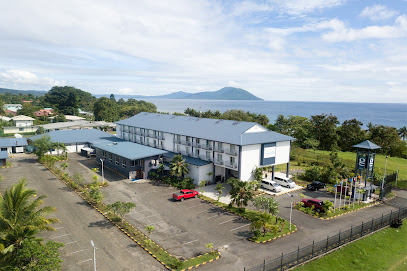
Kokopo Village Resort
Experience the tranquil beauty of Kokopo Village Resort, the perfect blend of relaxation and adventure in East New Britain, Papua New Guinea.

Kokopo War Museum
Explore the Kokopo War Museum for an educational journey through Papua New Guinea's wartime history and cultural heritage.
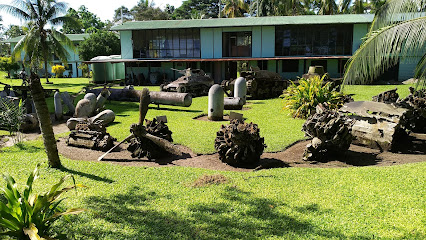
Admiral Yamamoto's Bunker
Discover the intriguing history of Admiral Yamamoto's Bunker in Rabaul, a key site of World War II in Papua New Guinea, surrounded by stunning natural beauty.
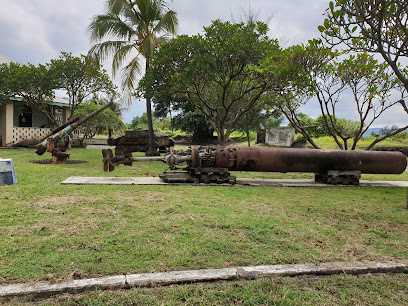
Hotel Kokopo
Discover comfort and local charm at Hotel Kokopo, your ideal base for exploring the stunning landscapes and rich culture of East New Britain.

Bitapaka War Cemetery
Explore the Bitapaka War Cemetery, a serene memorial in East New Britain honoring WWII heroes amidst tranquil landscapes and rich history.
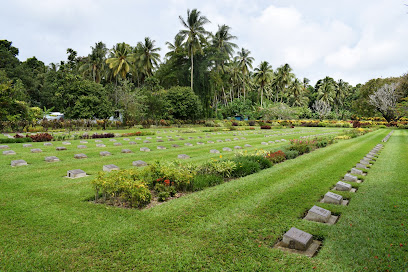
Kokopo Technical Secondary School
Explore the educational heart of Papua New Guinea at Kokopo Technical Secondary School, where culture and community thrive in harmony.
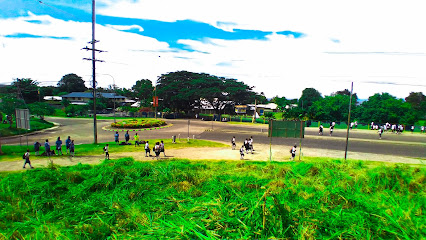
South Sea Horizons
Explore the beauty of South Sea Horizons, a tranquil church on Makau Esplanade offering spiritual solace and stunning coastal views.
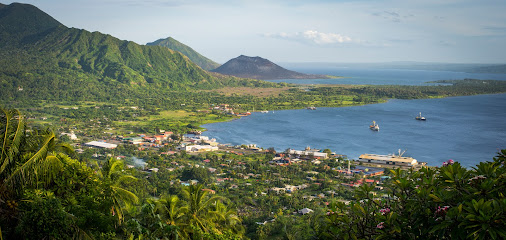
Niugini Dive and Tours
Experience the underwater wonders of East New Britain at Niugini Dive and Tours, where adventure and marine beauty await every diver.
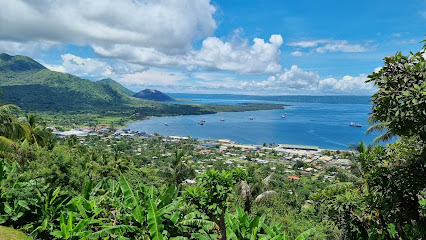
Nicholm Guest House
Experience true local hospitality at Nicholm Guest House in Kokopo, where comfort meets the beauty of East New Britain Province.
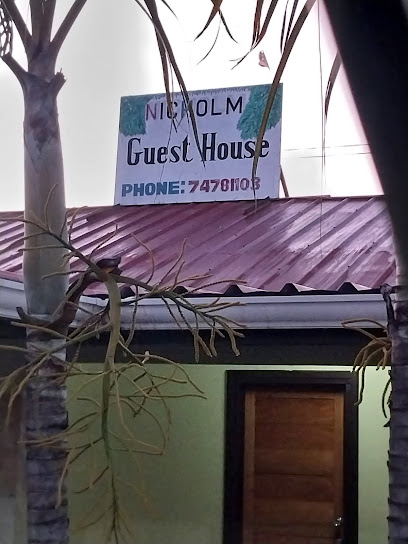
Kokopo Backpackers Inn
Discover the charm of Kokopo Backpackers Inn, a cozy guest house in East New Britain that offers budget-friendly accommodations and access to local adventures.
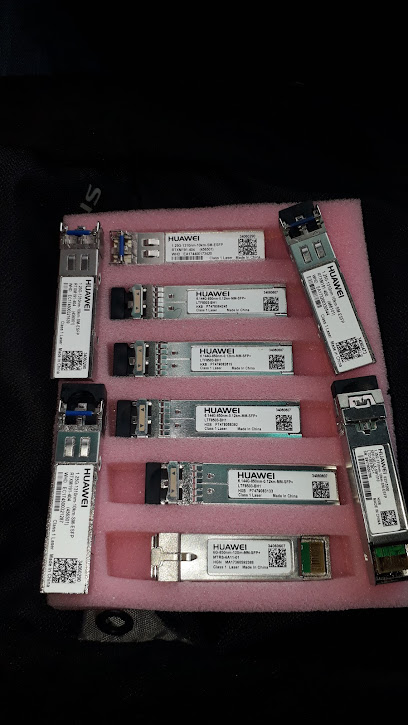
Kina Bank Kokopo
Experience seamless banking at Kina Bank in Kokopo, your reliable financial partner in East New Britain Province, Papua New Guinea.

Unmissable attractions to see
Rapopo Plantation Resort
Discover a tropical paradise at Rapopo Plantation Resort, where luxury meets breathtaking beachfront beauty in East New Britain Province.
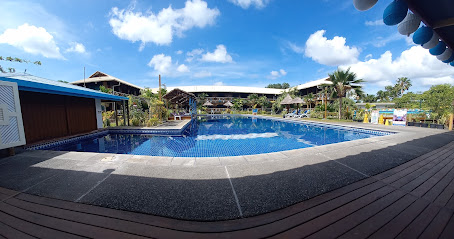
Papua New Guinea National Museum and Art Gallery
Discover Papua New Guinea's rich cultural heritage at the National Museum and Art Gallery in Port Moresby, showcasing art, artifacts, and history.
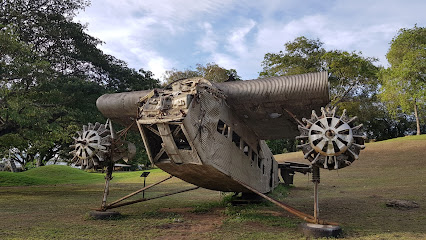
Rababa Hot Springs
Experience the tranquility of Rababa Hot Springs, a natural oasis in Matupit Number 1, where relaxation meets stunning landscapes.
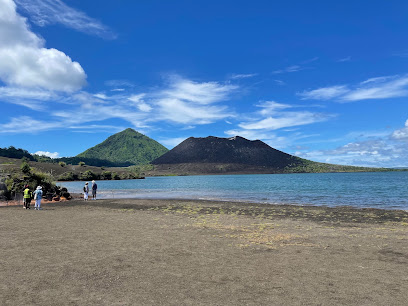
Bitapaka War Cemetery
Explore the poignant history at Bitapaka War Cemetery, a serene tribute to World War II heroes in East New Britain.
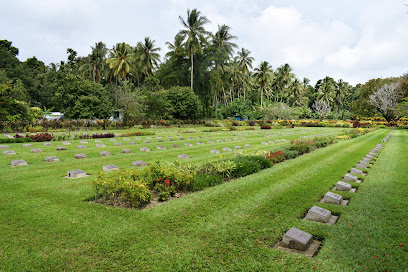
Massim Museum
Explore the cultural richness of Milne Bay at the Massim Museum, where tribal artifacts and history come to life in Alotau.
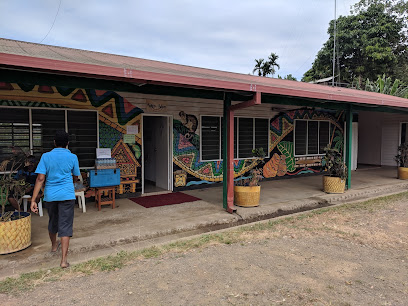
Japanese Barge Tunnel
Explore the captivating Japanese Barge Tunnel in East New Britain Province, a remarkable historical site showcasing World War II maritime artifacts.
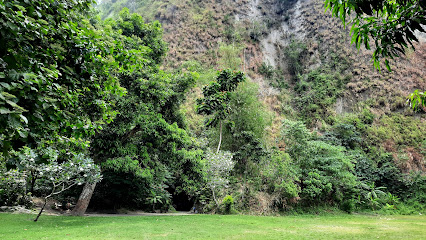
Japanese Peace Memorial
Discover the serene beauty and historical significance of the Japanese Peace Memorial in East New Britain Province, a tribute to peace and reconciliation.
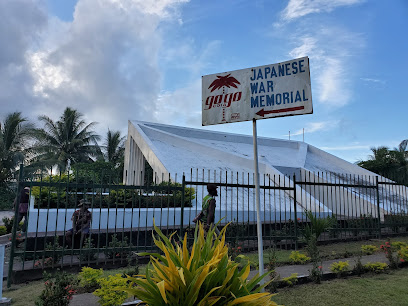
Pigeon Island
Explore Pigeon Island's breathtaking beauty and rich cultural heritage, a perfect destination for nature lovers and history enthusiasts alike.
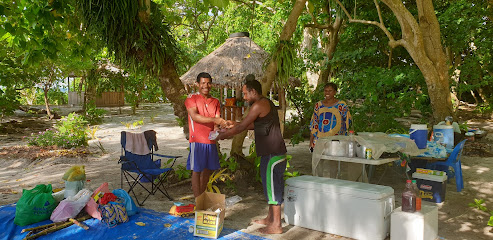
Halis Springs
Experience tranquility at Halis Springs, a hidden gem in New Ireland Province, where crystal-clear waters meet lush tropical landscapes.
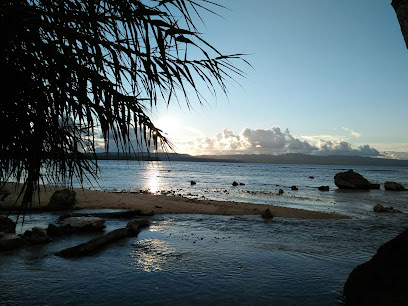
Dawapia (Bee Hives Rock Formations) Simpson Harbour
Explore the stunning Dawapia Bee Hives Rock Formations in Simpson Harbour, a natural wonder perfect for photography and nature lovers.
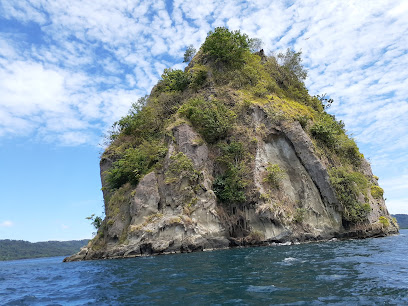
Hot Volcanic Springs
Experience the therapeutic Hot Volcanic Springs in East New Britain, a stunning natural attraction with relaxation and adventure in every soak.
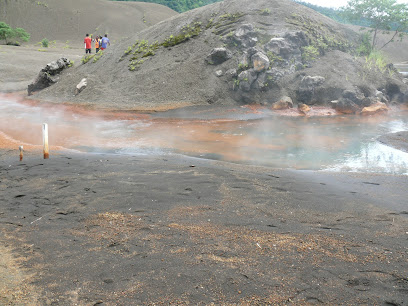
Karavia beach
Discover the pristine beauty of Karavia Beach in East New Britain, where soft sands meet crystal-clear waters for an unforgettable tropical escape.
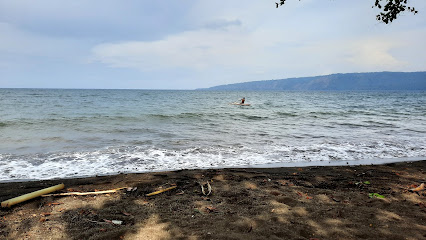
GOROPOARE HEIGHTS,BILUR VILLAGE,KOKOPO ENB
Experience breathtaking views and rich local culture at Goropoare Heights in Bilur Village, a hidden gem in East New Britain Province.
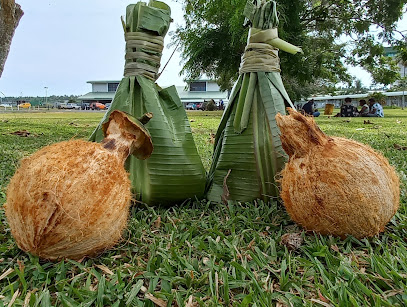
Tselo Backpackers & Tours
Explore the breathtaking landscapes and rich culture of East New Britain Province at Tselo Backpackers & Tours, your gateway to adventure in Rabaul.

ATAUBAR HERITAGE CULTURAL VILLAGE
Explore the essence of Papua New Guinea's culture at Ataubar Heritage Cultural Village, a vibrant showcase of traditions and breathtaking scenery.

Essential places to dine
Kokopo Beach Bungalow Resort
Experience serenity at Kokopo Beach Bungalow Resort - your gateway to relaxation and diving adventures in Papua New Guinea.
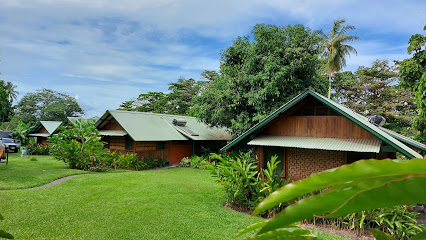
Rapopo Plantation Resort
Discover tropical tranquility at Rapopo Plantation Resort - where luxury meets nature in East New Britain Province.

Gazelle International Hotel
Discover comfort and hospitality at Gazelle International Hotel in Kokopo - your gateway to exploring East New Britain's beauty.
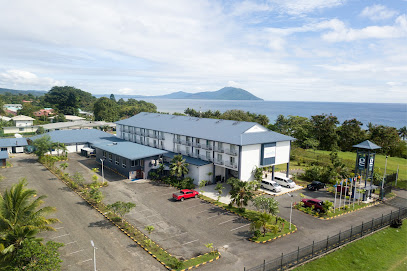
Brian Bell Home Centre Kokopo
Explore Brian Bell Home Centre Kokopo - Your destination for unique home goods reflecting Papua New Guinea's rich culture.
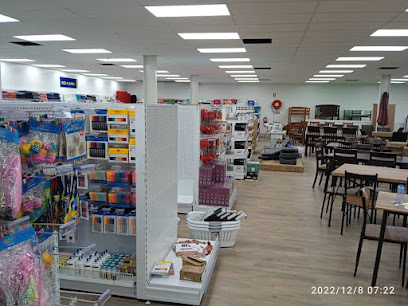
Kokopo Village Resort
Discover paradise at Kokopo Village Resort—where comfort meets rich cultural heritage in East New Britain Province.

Taklam Lodge and Tours
Discover the charm of East New Britain at Taklam Lodge – your gateway to adventure in Kokopo with personalized tours and warm hospitality.

Hot Rooster Kokopo
Experience authentic local flavors at Hot Rooster Kokopo, where delicious fast food meets warm hospitality in Papua New Guinea.
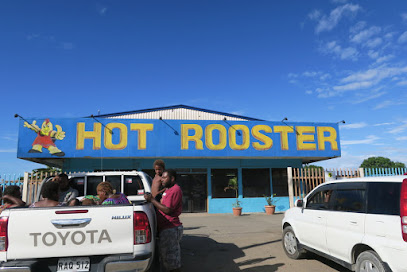
Monsieur Henry Cafe
Discover the cozy charm of Monsieur Henry Cafe in Kokopo—where delicious food meets warm hospitality amidst breathtaking surroundings.
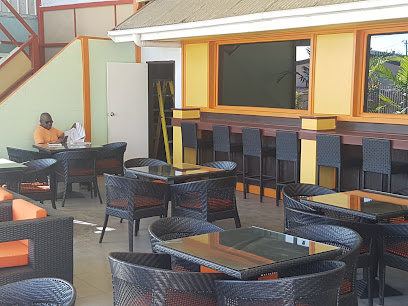
Rabaul Yacht Club
Discover the vibrant flavors and stunning vistas at Rabaul Yacht Club in East New Britain Province – where every meal is a celebration of island life.
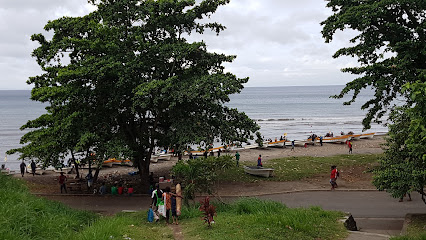
Kulau Lodge
Discover tranquility at Kulau Lodge: where stunning views meet exceptional dining on the beautiful North Coast of Papua New Guinea.
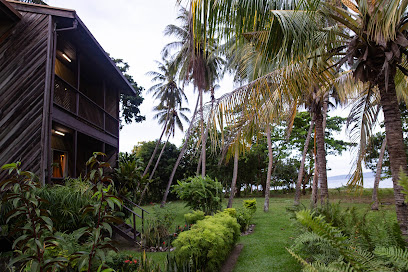
Kokopo War Museum
Explore Kokopo War Museum: A captivating journey through Papua New Guinea's military history with engaging exhibits and rich storytelling.
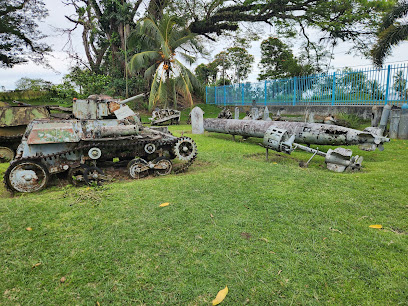
Mondo Cafeteria-Kokopo
Savor the essence of Papua New Guinea at Mondo Cafeteria-Kokopo, where local flavors meet warm hospitality.
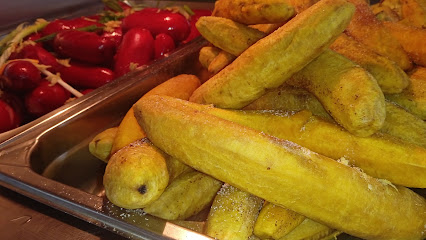
Club Coe
Discover Kokopo's vibrant nightlife at Club Coe—where electrifying music meets an unforgettable atmosphere.
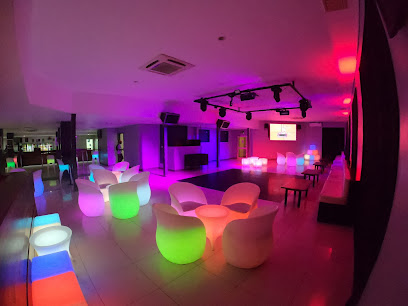
Dinnice Café - Kokopo
Discover authentic Papua New Guinean flavors at Dinnice Café in Kokopo - where every meal is a delightful experience.
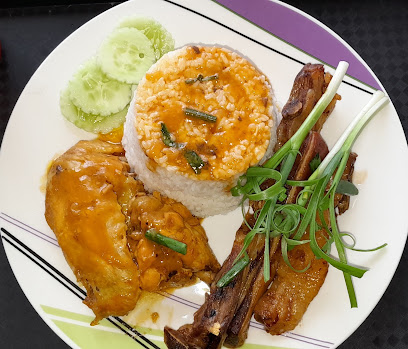
Golden Rooster
Discover delicious chicken dishes at Golden Rooster in Kokopo – a culinary gem showcasing local flavors and hospitality.

Markets, malls and hidden boutiques
Kokopo Market East New Britain PNG
Discover the vibrant culture of Papua New Guinea at Kokopo Market, a hub for local crafts and fresh produce in East New Britain.
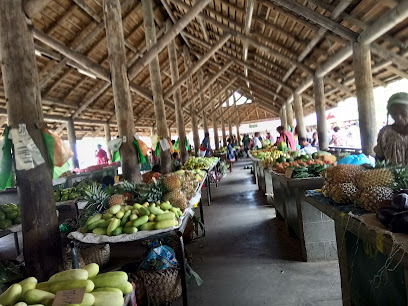
Kokopo Beach Bungalow Resort
Discover the serene beauty of Kokopo Beach Bungalow Resort, where tropical paradise meets adventure in Papua New Guinea.
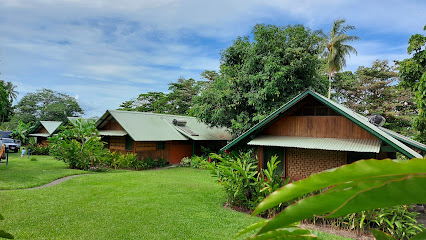
Tropicana Shopping Center RETAIL
Discover the vibrant Tropicana Shopping Center in Kokopo, where shopping meets local culture and community spirit.
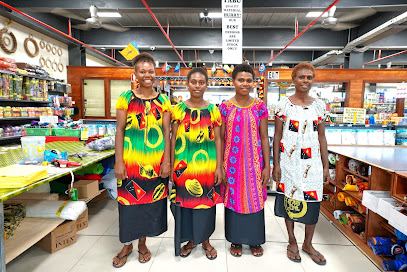
Andersons Supermarket Kokopo
Discover local flavors and vibrant culture at Andersons Supermarket Kokopo, your one-stop shop in East New Britain Province.
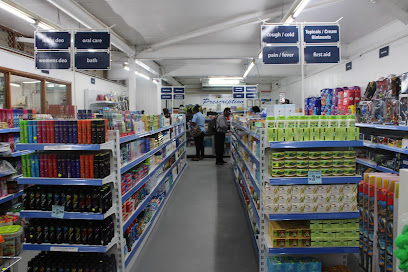
Brian Bell Home Centre Kokopo
Discover quality home goods and local treasures at Brian Bell Home Centre, Kokopo's premier shopping destination.
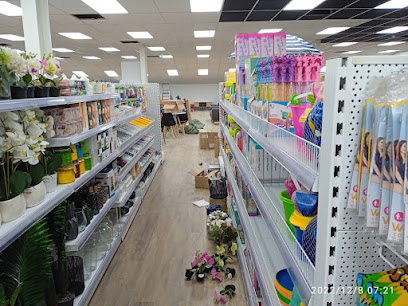
Kokopo Central (K-Central)
Discover the vibrant flavors and local culture at Kokopo Central, the heart of grocery shopping in Papua New Guinea.
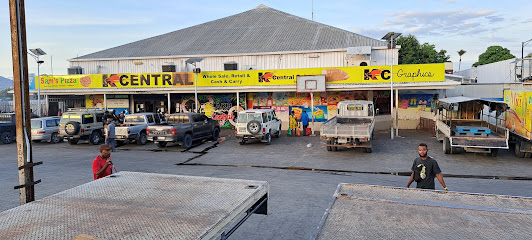
Papindo Takubar
Explore local culture at Papindo Takubar, a supermarket in Kokopo offering fresh produce, fabrics, and household goods.
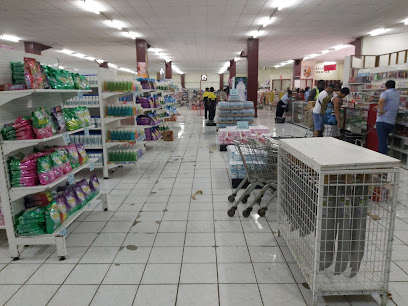
Echo Supermarket
Discover the local flavors and vibrant shopping experience at Echo Supermarket in Kokopo, East New Britain Province.
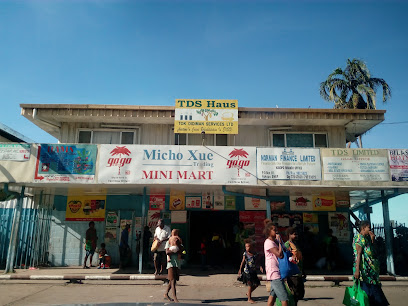
BNBM Hardware & Homecentre
Discover quality tools and home improvement supplies at BNBM Hardware & Homecentre, your essential stop in Kokopo, East New Britain.
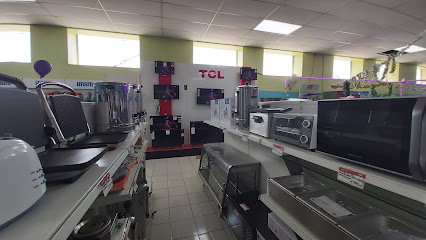
Leon Hardware - Kokopo
Leon Hardware in Kokopo: Your one-stop shop for tools and home improvement supplies in East New Britain Province.
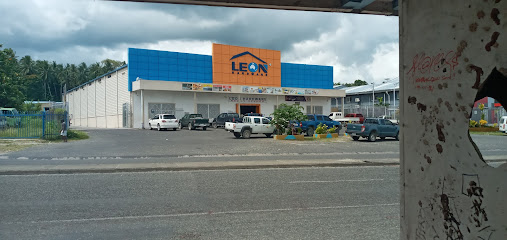
Gazelle Motors
Explore East New Britain with Gazelle Motors: Your trusted partner for quality vehicle rentals and sales in Kokopo.
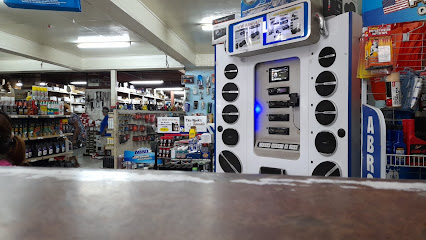
Fone Haus Kokopo
Explore Fone Haus Kokopo for the latest mobile tech and accessories, ensuring you're connected while discovering the beauty of Papua New Guinea.
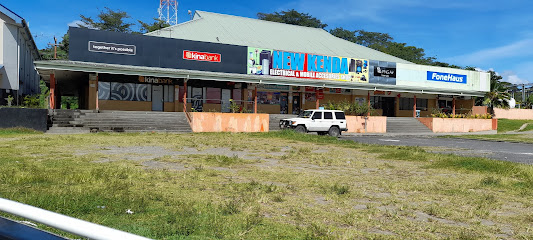
Auto World Limited
Discover a wide range of auto parts and accessories at Auto World Limited, Kokopo's premier destination for vehicle enthusiasts and tourists.

H3 International Ltd
Explore H3 International Ltd in Kokopo for unique stationery items, gifts, and a taste of local culture in East New Britain Province.

Bishop Brothers Kokopo
Explore Bishop Brothers Kokopo, the ultimate tool store in East New Britain, where quality meets reliability for all your DIY and construction needs.
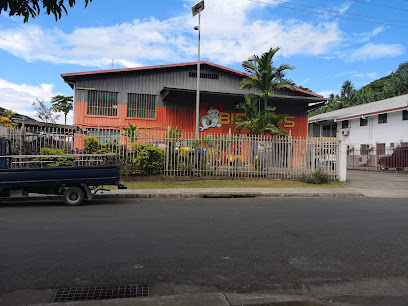
Essential bars & hidden hideouts
Kokopo Beach Bungalow Resort
Discover the tranquility and adventure of Kokopo Beach Bungalow Resort, a tropical paradise in East New Britain Province, Papua New Guinea.
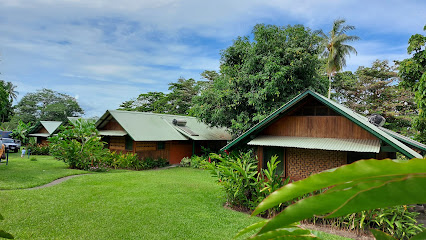
Gazelle International Hotel
Discover the perfect blend of comfort and local charm at Gazelle International Hotel in Kokopo, East New Britain Province.
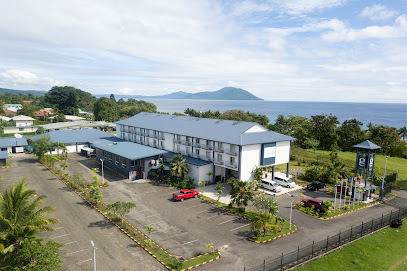
Andersons Supermarket Kokopo
Discover the flavors of Papua New Guinea at Andersons Supermarket Kokopo, where local goods meet international finds in a vibrant shopping experience.
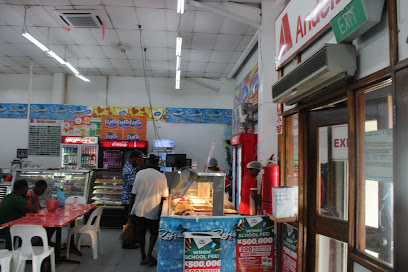
Hot Rooster Kokopo
Experience delicious fast food at Hot Rooster Kokopo, featuring local flavors and international favorites in a vibrant dining atmosphere.
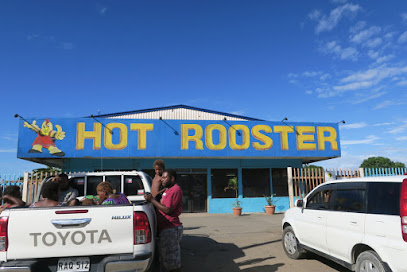
Monsieur Henry Cafe
Discover the vibrant atmosphere at Monsieur Henry Cafe in Kokopo, a perfect blend of local flavors and warm hospitality for every traveler.
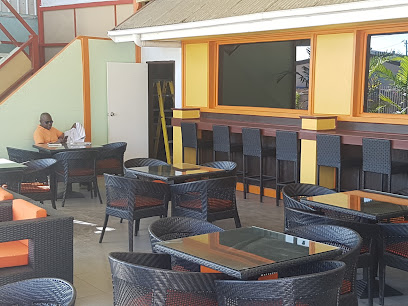
Papindo Takubar
Discover the culinary delights and vibrant atmosphere at Papindo Takubar, a supermarket in Kokopo, East New Britain Province.
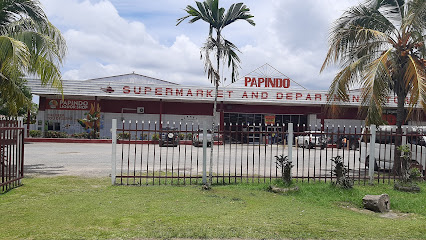
Kokopo War Museum
Discover the captivating history of Papua New Guinea at Kokopo War Museum, where artifacts and stories from wartime come to life in East New Britain.
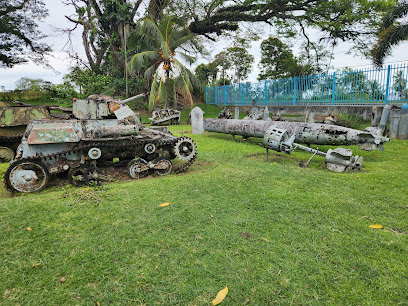
Hotel Kokopo
Discover the charm of East New Britain Province at Hotel Kokopo, your gateway to adventure and relaxation in paradise.

Kokopo Backpackers Inn
Experience the beauty and culture of East New Britain at Kokopo Backpackers Inn, the perfect guest house for budget travelers.
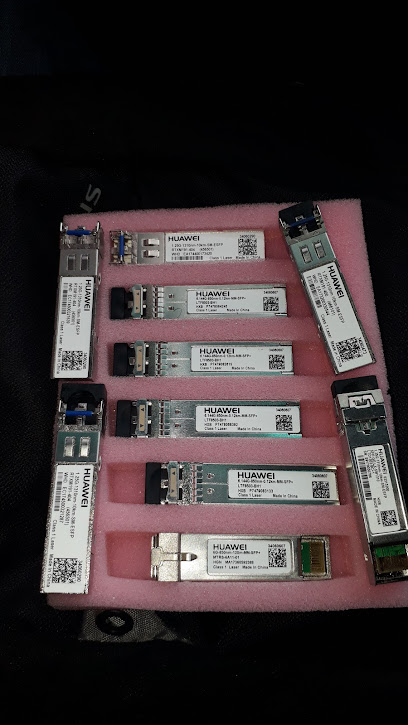
Taklam Lodge
Discover comfort and local charm at Taklam Lodge, your perfect guest house retreat in Kokopo, East New Britain Province.

Dinnice Café - Kokopo
Experience the authentic flavors of Papua New Guinea at Dinnice Café in Kokopo, where delicious cuisine meets warm hospitality.
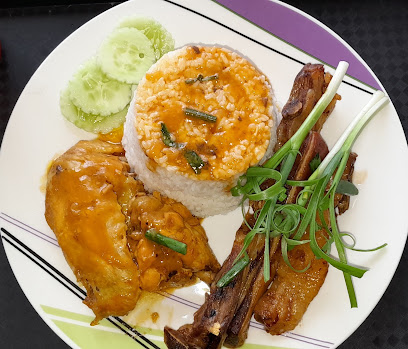
Club Coe
Discover the vibrant nightlife at Club Coe, Kokopo's premier night club offering unforgettable dancing and entertainment in East New Britain.
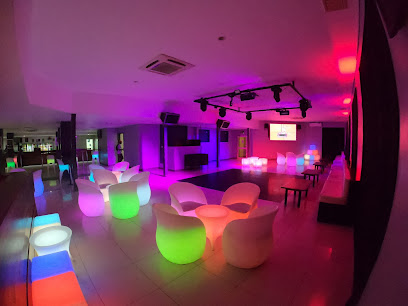
Golden Rooster
Experience the authentic taste of Papua New Guinea at Golden Rooster in Kokopo, where delicious chicken dishes await every visitor.

Andersands Kai Bar
Experience authentic local cuisine at Andersands Kai Bar, the perfect spot for food lovers exploring East New Britain.

Local Phrases
-
- HelloGutpela dei
[Goot-peh-lah day] - GoodbyeGutbai
[Goot-bye] - YesYes
[Yes] - NoNogat
[No-gaht] - Please/You're welcomePlis
[Plis] - Thank youTenkyu
[Tehn-kyoo] - Excuse me/SorrySori
[So-ree] - How are you?Yu stap gutpela?
[Yoo stahp goot-peh-lah?] - Fine. And you?Mi stap gutpela. Na yu?
[Mee stahp goot-peh-lah. Nah yoo?] - Do you speak English?Yu save long tok Inglis?
[Yoo sah-veh long tohk Ing-lis?] - I don't understandMi no save long harim
[Mee noh sah-veh long hah-reem]
- HelloGutpela dei
-
- I'd like to see the menu, pleaseMi laik lukim menu, plis
[Mee like loo-keem meh-noo, plees] - I don't eat meatMi no kaik abus
[Mee noh kah-ik ah-boos] - Cheers!Glas
[Glahs] - I would like to pay, pleaseMi laik baim, plis
[Mee like bah-eem, plees]
- I'd like to see the menu, pleaseMi laik lukim menu, plis
-
- Help!Help!
[Help!] - Go away!Go liklik!
[Go lee-kleek!] - Call the Police!Kolim Polis!
[Ko-leem Poh-lees!] - Call a doctor!Kolim dokta!
[Ko-leem dohk-tah!] - I'm lostMi lusim
[Mee loo-seem] - I'm illMi sik
[Mee seek]
- Help!Help!
-
- I'd like to buy...Mi laik baim...
[Mee like bah-eem...] - I'm just lookingMi tasol lukim
[Mee tah-sol loo-keem] - How much is it?Em i stap long hamas?
[Em ee stahp long hah-mas?] - That's too expensiveEm i luk olsem tok gut
[Em ee look ol-sehm tohk goot] - Can you lower the price?Yu inap lusim pris?
[Yoo ee-nahp loo-seem prees?]
- I'd like to buy...Mi laik baim...
-
- What time is it?Em i taim?
[Em ee tah-eem?] - It's one o'clockEm i wan taim
[Em ee wahn tah-eem] - Half past (10)Haf past ten
[Hahf past tehn] - MorningMoning
[Moh-ning] - AfternoonApinun
[Ah-pee-noon] - EveningEvenin
[Eh-veh-neen] - YesterdayNaisde
[Nah-ees-deh] - TodayTude
[Too-deh] - TomorrowTumoro
[Too-moh-roh] - 1Wan
[Wahn] - 2Tu
[Too] - 3Tri
[Tree] - 4Fo
[Foh] - 5Faiv
[Fah-eve] - 6Sikis
[See-kees] - 7Seven
[Seh-vehn] - 8Eit
[Ayt] - 9Nain
[Nine] - 10Ten
[Tehn]
- What time is it?Em i taim?
-
- Where's a/the...?Em i stap long...?
[Em ee stahp long...?] - What's the address?Em i adress?
[Em ee address?] - Can you show me (on the map)?Yu inap soim mi (long map)?
[Yoo ee-nahp soy-mee mee (long map)?] - When's the next (bus)?Em i namba we? (bas)?
[Em ee nahm-bah we? (bahs)?] - A ticket (to ....)Wan tiket (go...)
[Wahn tee-keht (goh...)]
- Where's a/the...?Em i stap long...?
History of Kokopo
-
Before European contact, Kokopo and the surrounding Gazelle Peninsula were inhabited by the Tolai people. The Tolai culture is rich with traditions and customs that have been passed down through generations. The Tolai were known for their complex social structures, vibrant ceremonies, and the production of shell money, which was used in trade and social transactions.
-
In the late 19th century, the New Guinea islands, including the area around Kokopo, were claimed by Germany. The town became part of German New Guinea in 1884. During this time, the area saw the establishment of plantations, missionary activities, and administrative centers. German influence can still be seen in some of the architecture and place names in the region.
-
Following the outbreak of World War I, Australian forces occupied German New Guinea in 1914. The Treaty of Versailles in 1919 formalized this control, and the area was administered by Australia under a League of Nations mandate. During this period, the town of Kokopo served as a key administrative and commercial hub in the region.
-
Kokopo's history is closely tied to the events of World War II. In January 1942, Japanese forces invaded and occupied the nearby town of Rabaul, turning it into a major military base. Kokopo, located just a few miles away, was also affected by the conflict. Allied forces launched numerous air raids and battles to recapture the area, resulting in significant destruction and loss of life. After the war, Kokopo became an important site for recovering artifacts and relics from this tumultuous period.
-
After World War II, Kokopo underwent a period of reconstruction and development. The town gradually rebuilt its infrastructure and grew in importance as a commercial and administrative center. In 1994, a volcanic eruption destroyed much of the nearby town of Rabaul, leading to a significant population shift to Kokopo. This event accelerated Kokopo's growth and development, transforming it into the region's primary urban center.
-
In recent decades, there has been a resurgence of interest in preserving and celebrating the traditional cultures of Kokopo and the surrounding areas. Festivals, such as the Mask Festival, showcase traditional Tolai dance, music, and art. Modern Kokopo is a vibrant blend of old and new, where visitors can explore historical sites, enjoy cultural events, and experience the unique beauty of the Gazelle Peninsula.
Kokopo Essentials
-
Kokopo is located on the northeastern coast of East New Britain in Papua New Guinea. The nearest international airport is Tokua Airport (RAB), which is approximately 20 kilometers from Kokopo. Flights to Tokua Airport are available from Port Moresby, the capital city of Papua New Guinea. From the airport, you can take a taxi or arrange for a hotel transfer to reach Kokopo. The journey from the airport to the city center typically takes around 30 minutes.
-
In Kokopo, local transportation options include taxis, buses, and minibuses (PMVs). Taxis are readily available and can be hailed on the street or arranged through your hotel. PMVs are a popular and affordable way to get around the city and connect to nearby villages. Renting a car is also an option for travelers who prefer to explore at their own pace. Be aware that road conditions can vary, and driving is on the left side of the road.
-
The official currency in Papua New Guinea is the Papua New Guinean Kina (PGK). Credit cards are accepted in some hotels, restaurants, and shops in Kokopo, but it is advisable to carry cash, especially when visiting smaller establishments and rural areas. ATMs are available in Kokopo, and it is recommended to withdraw sufficient cash before traveling to more remote areas.
-
Kokopo is generally a safe destination for tourists, but it is important to exercise caution and take standard precautions. Avoid walking alone at night and be mindful of your belongings in crowded places. Some areas in and around Kokopo have higher crime rates, such as Rabaul town, so it is best to stay vigilant and avoid these areas after dark. Always seek advice from locals or your accommodation regarding which areas to avoid.
-
In case of emergency, dial 111 for immediate assistance. The local police station and medical facilities are available in Kokopo. It is highly recommended to have travel insurance that covers medical emergencies. For minor health issues, there are pharmacies in the city where you can purchase over-the-counter medications. The St. Mary's Vunapope Hospital is the main healthcare facility in the area.
-
Fashion: Do dress modestly, especially when visiting local villages and religious sites. Avoid wearing revealing clothing. Religion: Do respect local customs and traditions. When visiting churches or sacred sites, dress conservatively and remove your hat. Public Transport: Do be respectful and give up your seat to elderly passengers. Don't eat or drink on public transport. Greetings: Do greet people with a handshake and a smile. A friendly 'hello' or 'good morning' is appreciated. Eating & Drinking: Do try local dishes and accept food offerings graciously. Don't refuse hospitality, as it is considered impolite.
-
To experience Kokopo like a local, visit the Kokopo Market where you can buy fresh produce, seafood, and traditional PNG crafts. Engage with locals, as they are often friendly and eager to share stories about their culture and history. Don't miss a visit to the Kokopo War Museum to learn about the area's World War II history. For a unique experience, take a boat trip to the nearby Duke of York Islands and enjoy the pristine beaches and crystal-clear waters.
Trending Landmark in Kokopo
-
Kokopo Beach Bungalow Resort
-
Rapopo Plantation Resort
-
Tropicana Shopping Center RETAIL
-
Gazelle International Hotel
-
Kokopo Village Resort
-
Kokopo War Museum
-
Admiral Yamamoto's Bunker
-
Hotel Kokopo
-
Bitapaka War Cemetery
-
Kokopo Technical Secondary School
-
South Sea Horizons
-
Niugini Dive and Tours
-
Nicholm Guest House
-
Kokopo Backpackers Inn
-
Kina Bank Kokopo
Nearby Cities to Kokopo
-
Things To Do in Rabaul
-
Things To Do in Kavieng
-
Things To Do in Kimbe
-
Things To Do in Arawa
-
Things To Do in Taro Island
-
Things To Do in Lae
-
Things To Do in Gizo
-
Things To Do in Alotau
-
Things To Do in Madang
-
Things To Do in Goroka
-
Things To Do in Port Moresby
-
Things To Do in Mount Hagen
-
Things To Do in Yandina
-
Things To Do in Buka
-
Things To Do in Wewak






